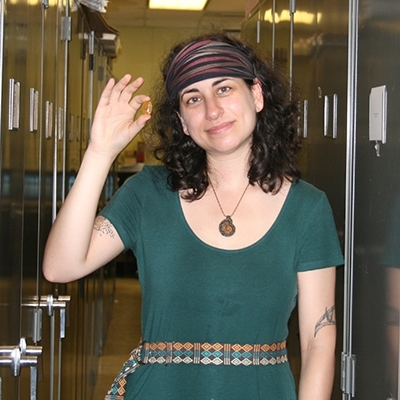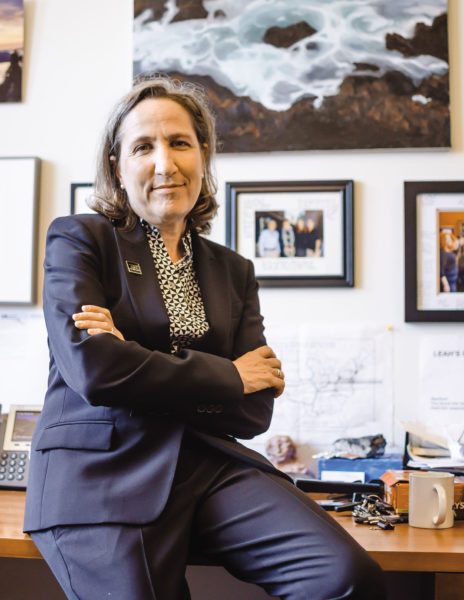Home

Title IX is a federal law that aims to protect people from discrimination based on sex in education programs or activities that receive federal financial assistance. It applies to all institutions which accept institutions that receive federal financial assistance from the Education Department, including state and local educational agencies.
The Stanford Title IX Office addresses the University’s responsibilities under Title IX, as well as the Violence Against Women Reauthorization Act of 2013, which requires universities to have procedures in place to address sexual assault, domestic violence and stalking.
The Office oversees two processes: The Stanford Student Title IX Process for matters involving an accused student, and the Stanford Title IX Administrative Process for matters not covered by the Stanford Student Title IX Process.
Students who are going through the Title IX Process may receive counseling through Vaden’s Confidential Support Team (CST), which provides “free and confidential support to Stanford students impacted by sexual assault and relationship violence” according to Vaden’s website. Students and faculty have raised concerns that since appointments for the perpetrator and accuser are held at the same place, the two could see each other in the same building, which could cause trauma.
“There is no defense for this,” wrote law professor and activist Michele Dauber in a tweet. “[Stanford] can easily afford a counselor to treat perpetrators in a different building.”
Provost Persis Drell and Senior Associate Vice Provost for Institutional Equity & Access Lauren Schoenthaler wrote in response to student-submitted questions from a December town hall that “CST works hard to prevent known parties from seeing each other” but that “CST does not always know the identity of the parties.”
Drell and Schoenthaler added that “the same therapist will not treat the same parties in a single manner,” but did not propose any changes to the counseling system.
Under the current Student Title IX Process, Stanford offers students going through the process up to nine hours of attorney consultation time paid for by the University, which offers a list of Stanford-sponsored attorneys willing to do this work. However, many have said that nine hours is not enough.
“Nine hours doesn’t get you anywhere,” Bob Ottilie ’77, a defense attorney who has worked with multiple accused students at Stanford, told The Daily in 2017.
Dauber said that she has never spent less than 200 hours on a Title IX case. Crystal Riggins, a lawyer who used to serve on Stanford’s Title IX panel of sexual assault attorneys but was removed in 2017 following her public criticism of the University’s process, also told The New York Times that nine hours was not enough to help students navigate the university’s system.
University spokesperson Lisa Lapin called Riggins’ removal from her Stanford advisory role “common sense,” as “She expressed that she had no confidence in the process and no confidence in obtaining a good outcome for her clients.”
Drell and Schoenthaler wrote in response to student-submitted questions that the University is “reviewing whether to increase the number of attorney hours in every case; right now, parties are able to request additional time from the Title IX Office in complex cases.”
Dauber has additionally criticized the policy for not applying to cases between students and faculty. When going through the Title IX Student Process, parties are entitled to nine hours of attorney service paid for by the University. When going through the Title IX Administrative Process, no party is entitled to attorney service paid for by the University.
Drell and Schoenthaler wrote that this is because “there is no hearing and therefore no cross-examination or obligation to make evidentiary objections” in cases against faculty members, which go through the Administrative Title IX Process and are based on investigation.

“Men are overwhelmingly in power in academia. They will admit that something needs to be done about sexual assault and sexual harassment in academic, but they will never do the work themselves of figuring out what could be done. As long as you keep it theoretical and as long as you are saying things that cannot leave any concrete steps or any actual improvements then people like you, they call you a hero. But if you point at that guy down the hall, who you are friends with, who you co-authored the scientific publication with and who ruined the careers and possibly the lives of two young women, then suddenly you are overreacting, and you are being unfair to that man who deserves his 17th second chance.”
“I cannot continue to bite my tongue about this sort of thing for the rest of my working life, for the rest of my career. And I’m resigned to the fact that sooner or later, it will be a huge problem for me professionally that I have spoken out about this issue.”

“Stanford is a hostile environment for women who advocate on this issue. Certainly, I’ve been blackballed from many activities and things I wanted to participate in. My reputation was really dragged through the mud by many people connected to the University during the Aaron Persky recall campaign. That was a never ending nightmare that went on for years.”
“I’ve experienced panic attacks, I’ve experienced uncontrollable crying. There were long periods of time where I really feared that the University would take some kind of unspecified action against me for no reason. I’m tenured, so it makes it very difficult for the University to terminate me. But there are a lot of things the University can do in order to send you the message that you are undesirable and the persona non grata.”
Students and faculty have raised concerns that the University’s definition of sexual assault — which requires that the act be unwanted penetration conducted by “means of force (express or implied), violence, duress, menace, fear or fraud” or when a person is “unaware or incapacitated” — is too narrow, especially when taking into account how Stanford defines incapacitation.
The University defines incapacitation as when the victim “lack[s] the ability to voluntarily agree to sexual activity because the person is asleep, unconscious, mentally and/or physically helpless, otherwise unaware that sexual activity is occurring, or unable to appreciate the nature and quality of the act.” Moreover, it mandates that “a reasonable sober person would have known the person to be incapcitated” in order to be held responsible for sexual misconduct.
Critics of this definition say that engaging in sexual acts with someone who is under the influence but not fully unconscious should still be classified as assault.
“This limited definition of sexual assault is extremely outdated,” said Meghan Warner, a third-year sociology Ph.D. student who studies sexual violence. “Students should know — and many do — that alcohol impedes someone’s ability to make reasoned decisions. This unique and outdated definition can be weaponized by perpetrators who target conscious, but extremely intoxicated, people.”
University spokesperson E.J. Miranda wrote in a statement to The Daily that Stanford would not be able to change its definitions without approval from the Office of Civil Rights (OCR). Miranda wrote that Stanford sent definition changes to the OCR “to address community concerns about the narrow definition” in 2018 but did not receive approval.
After going through the student Title IX Process, Stanford requires that a three-person Title IX Hearing Panel come to a unanimous decision for a student to be expelled. Expulsion is the “expected sanction for a finding of sexual assault,” according to the Student Title IX Process. Stanford students and faculty have raised concerns that the policy skews the process in favor of the respondent.
“The unanimity requirement fails to acknowledge that individuals may interpret whether or not someone was sexually assaulted because of pervasive stereotypes about who typically constitutes a victim or perpetrator,” said second-year law student Danielle Roybal. “This can be especially harmful for victims of color, who are less likely to be believed because of stereotypes about sexual desire.”
Roybal said the unanimity requirement could also allow a biased panel member’s opinion to “eclipse” the other two panelists’ finding of guilt.
Law professor Pamela Karlan, who chairs the Advisory Committee on Sexual Assault Policies and Practices, defended the unanimity requirement at a 2017 Faculty Senate meeting.
“It’s important for people to understand that the vote occurs after deliberation among the members of the hearing panel,” she said. “It’s not as if they each go back to a room and they press a button and we look at the result. This is the result of discussion. You could just as easily call it a consensus as calling it unanimity.”
Although expulsion is the "expected" sanction for sexual assault, the sanction has not often been used, leading students and faculty to criticize the lack of expulsions as unfair to victims and discouraging for those considering reporting assault.
Since 2000, three students have been expelled and three students have voluntarily left the University for reasons related to allegations of sexual misconduct and relationship violence, according to Drell and Schoenthaler’s response to student-submitted questions.
The 2015 Task Force on Sexual Assault Policies and Practices, the same task force which introduced a narrowed definition of sexual assault, recommended expulsion as the sanction for sexual assault.
“The [task force] dramatically narrowed the definition of sexual assault under the pretext that they were going to expel people who had beeen found responsible for this terrible conduct,” Dauber said. “Then they didn’t expel them, so now we have the worst of both worlds.”
Former Associated Students of Stanford University (ASSU) President Shanta Katipamula ’19 M.S. ’20 said the lack of expulsions dissuaded victims from reporting assault and the sanctions used in expulsion's place constituted only a “little slap on the wrist” for such behavior.
“We haven’t seen the results of this policy come through at all,” Katipamula said.
Drell and Schoenthaler wrote in response to student-submitted questions that “in spite of our support for expulsion, the sanction is not common,” as many cases end in non-hearing resolutions, or students agree to leave the University without the ability to re-enroll, such as Brock Turner.
“The panel is required to consider the sanction of expulsion,” they wrote. “In the case of expected expulsion, The decision-makers may determine that the outcome is not appropriate based on a review of the individual circumstances of the matter.”
“I tried to push it out of my mind, but it was so heavy I didn’t talk, I didn’t eat, I didn’t sleep, I didn’t interact with anyone. After work, I would drive to a secluded place to scream. I didn't talk, I didn’t eat, I didn't sleep, I didn't interact with anyone and I became isolated from the ones I loved most.
I was not only told that I wasn’t assaulted, I was told that because I couldn’t remember, I technically could not prove it was unwanted. And that distorted me, damaged me, almost broke me. It is the saddest type of confusion to be told that I was assaulted and nearly reaped, blatantly out in the open, but we don’t know if it counts as assault yet. I had to fight for an entire year to make it clear that there was something wrong with this situation.”
You took away my worth, my privacy, my energy, my time, my safety, my intimacy, my confidence, my own voice, until today.”

